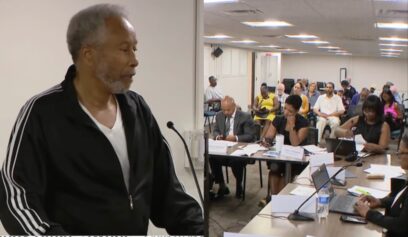The San Francisco African American Reparations Advisory Committee wants the city to pay longtime residents millions of dollars and has advised the city to erase all financial debt for Black residents.
This recommendation comes in a draft proposal submitted to the San Francisco Board of Supervisors on Dec. 23.
The committee recommended providing Black residents of the city with a one-time payment of $5 million as amends for systematic repression suffered by Black Americans. Residents must prove they’ve been a resident for at least 10 years and be at least 18.
The residents would also have to prove two other criteria of a list that includes being a descendant of an enslaved person, having attended San Francisco public schools during segregation, being directly affected by the failed War on Drugs, or either being born in or migrated to the city between 1940 and 1996 for at least 13 years.

The San Francisco Reparations Committee also recommended that the city supplement the income of low-income recipients to bring their annual income to $97,000, the Area Median Income or AMI. The plan would supplement recipients’ incomes annually for at least 250 years.
“Racial disparities across all metrics have led to a significant racial wealth gap in the City of San Francisco,” the panel wrote. “By elevating income to match AMI, Black people can better afford housing and achieve a better quality of life.”
The committee also recommended the city issue a formal apology for racial abuse and establish an independent Office of Reparations within the City to execute their recommendations.
“While neither San Francisco nor California formally adopted the institution of chattel slavery, the tenets of segregation, white supremacy and systematic repression and exclusion of Black people were codified through legal and extralegal actions, social codes, and judicial enforcement,” reads the recommendation.
“A lump sum payment would compensate the affected population for the decades of harms that they have experienced and will redress the economic and opportunity losses that Black San Franciscans have endured, collectively, as the result of both intentional decisions and unintended harms perpetuated by City policy.”
In addition, the committee suggested eliminating Black residents’ financial debt to ensure economic empowerment. All educational, personal, credit card and payday loans would be included. “When this is combined with lower household incomes, it can create an inescapable cycle of debt. Eliminating this debt gives Black households an opportunity to build wealth.”
The state of California established a reparations task force in 2020. Kamilah Moore from the California Reparations Task Force said reparations would fulfill the promises made following the abolition of slavery by the federal government.
“You can’t talk about a racial reckoning in this country without mentioning reparations,” said Moore. “Reparations are comprehensive enough to address all of the ills that still impact the African American community.”
Cities in Illinois and Minnesota are also exploring reparations, and the Amherst Town Council in Massachusetts recently approved a fund allocating $2 million over a decade. A task force in Detriot, Michigan, was recently approved by the city council as well.
A federal reparations bill was also introduced by Rep. Sheila Jackson Lee (D-Texas) in 2021. The bill was established to examine slavery and discrimination in both the colonies and the United States from 1619 to the present day. The “Commission to Study and Develop Reparation Proposals for African Americans” would recommend the appropriate remedies upon the end of the study.
“Tragically, 250 years of slavery in the United States for those enslaved Africans did not receive workman’s comp, salary, 401(k), or anything, and literally built the wealth of the United States and Europe,” Jackson told MSNBC.


